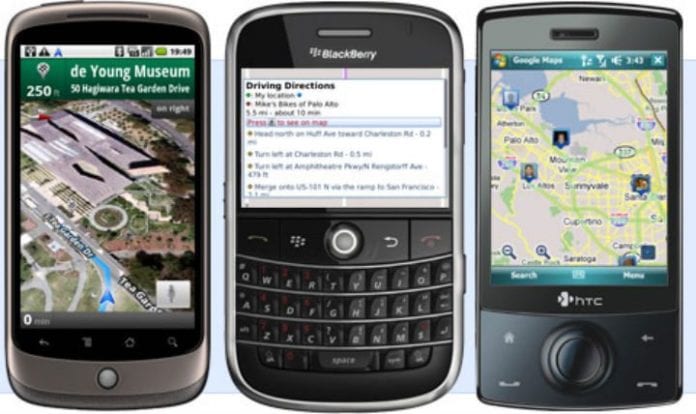Editor’s Note: In an attempt to broaden our interaction with our readers we have created this Reader Forum for those with something meaningful to say to the wireless industry. We want to keep this as open as possible, but we maintain some editorial control to keep it free of commercials or attacks. Please send along submissions for this section to our editors at: [email protected].
There has been a significant change of attitude from operators toward over-the-top and other third-party content providers. Mobile operators are increasingly realizing that companies like Google and Facebook are not the enemy, but complementary players in the digital value chain. Many operators are now starting to work with OTTs and content providers to create new points of differentiation in an increasingly crowded marketplace. The goal is to strengthen their own position in the value chain and create new revenue streams.
A win-win
The challenge many operators face is that there is very little to choose between them and their nearest competitor. For the most part, the network capability and available devices selection are identical from operator to operator. When it comes to differentiation, content partnerships really do offer the most compelling alternative. If operators select the right partners, they can be certain of increased data usage and can enable innovative revenue sharing models to further boost profitability. The content providers themselves have the opportunity to establish themselves in new markets or increase their own brand awareness and consumer usage numbers (depending on the content available).
Taking center stage
Operators have the capability and available resources to play a central role in the digital value chain and content providers know it. Operators have, after all, always had the delivery channel for digital goods and services. They also have established customer billing relationships, brand awareness and the mechanism to collect customer usage and behavioral data. These combined traits have made the operator community a hotly pursued audience by content providers – most notably the music streaming companies.
Music to everyone’s ears
Spotify, Beats, Deezer and Napster are all signing deals with mobile operators. Among them, these four companies have around 19 million paying customers (compared with 3.6 billion mobile subscribers worldwide). Using mobile as a delivery channel offers immediate access to a huge market that is used to paying month-in, month -out for service. If the music business could get a small percentage of the mobile market it would transform their industry.
Lights, camera, mobile?
Television and movie companies are also looking at mobile. The recent interconnect deals in the U.S. with the main operators and Netflix could indicate that content providers are willing to discuss paying for optimum delivery. In the U.K., Vodafone launched their LTE service promoting free Netflix, Sky Sports TV or Spotify premium. Unlike music streaming however, streaming video is network hungry and expensive. For example, if a subscriber wanted to watch video with its data package, 32 minutes of video streaming a day on LTE would use up its monthly allocation of 4 gigabytes. That’s an expensive way to watch half an episode of “House of Cards.”
If these types of partnerships are to prove successful, work needs to be done to ensure they offer value in terms of data pricing. Options could include having video traffic sponsored or subsidized by the content partner or even advertisers. Or the operator could always look at intelligent network selection and off-load video traffic to the nearest Wi-Fi network – if the quality is acceptable.
Is zero-rating content the answer to profitable partnerships?
“Zero-rating” popular applications has been around for some time as operators offer, for example, free Facebook in order to drive data adoption. We’re also seeing application service passes (e.g. Ooredoo Kuwait’s WhatsApp service) in which the customer pays a small amount per month and usage is restricted to the specific app. In April, German operator E-Plus launched its WhatsApp prepaid SIM card which offers mobile voice minutes, a data tariff and zero-rated OTT instant-messaging services from WhatsApp. This prepaid offer costs about $12.50 per month, which makes WhatsApp free even when the subscriber runs out of credit (in the 30-day period). This is a major benefit over other networks that charge for the data required for WhatsApp (which is installed on 90% of all smartphones in Germany). This provides a potential user base of more than 30 million people. By working with this OTT, E-Plus can leverage the popularity of WhatsApp to attract new customers and open new revenue streams.
The secret to partnership monetization? It’s all about the BSS
As operators move into new verticals and offer a wider range of digital services, they need to examine how they will build, launch and monetize new offers involving third-party partners. They also will need to be able to launch services more quickly, manage the product lifecycle in a more dynamic fashion, rapidly react to market changes and be able to retire services much quicker as well.
Business support systems will need to become automated and virtualized, enabling operators to “learn fast” and rapidly roll out new partner offers. As the number of partners grows, operators will increasingly provide secure access to them to enable them to build and maintain their own offers. By automating BSS and offering a portal for “partner self-service” operators can reduce operating costs as well as enable a faster time to market.
One thing’s for certain, the days of the OTTs and content players being the enemy are in the past. New partnerships are being made and while many are still eyeing one another nervously, we seem to be heading in the right direction. Let’s hope that the operators have the BSS systems in place to enable mutually beneficial business models, otherwise they could end up not maximizing the potential review opportunities available.

